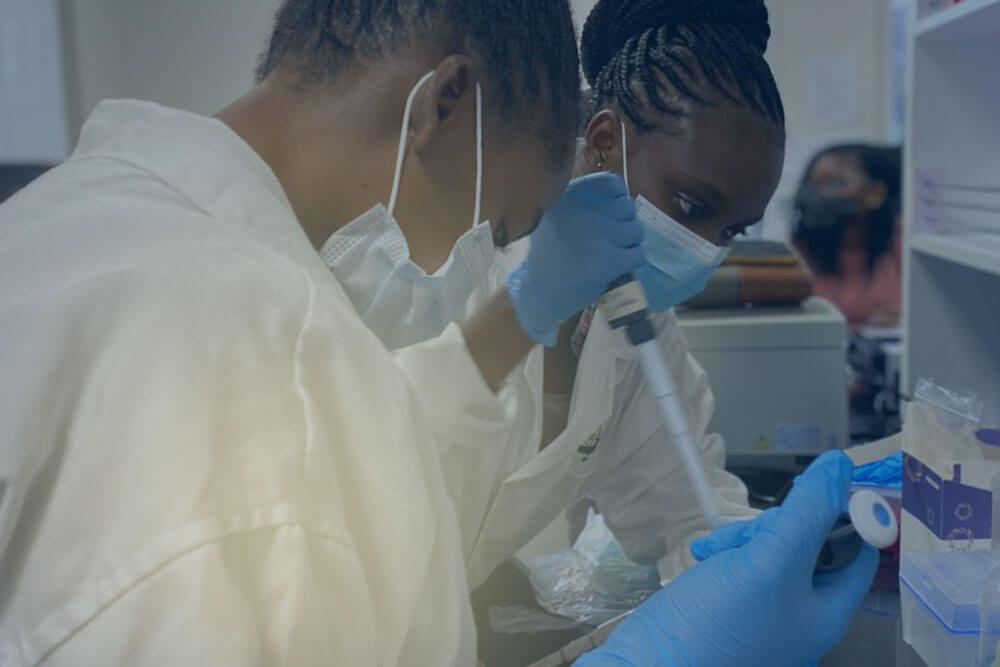Strong malaria surveillance systems also help design effective health interventions and evaluate the impact of malaria control programmes.
Malaria surveillance is the continuous and systematic collection, analysis and interpretation of malaria-related data
The data collected during malaria surveillance is used in the planning, implementation and evaluation of public health practice. Improved Malaria surveillance enables countries to monitor changing disease patterns and determine the appropriate interventions for affected populations or groups.
Our Ongoing Projects on Malaria Survellance
Rapid Pooling Project
Proudly Funded by:

In Collaboration With:

In partnership with the National Malaria Elimination Programme (NMEP) in Ghana, this project aims to improve the Malaria Molecular Surveillance system of Ghana by introducing an innovative surveillance scheme involving rapid collection of blood samples from malaria patients by clinical staff as a preserved liquid sample, combined with rapid laboratory pooling, and next-generation sequencing.
The project is currently running on the sentinel sites established by the NMEP and we hope to fully integrate this innovative scheme into the National malaria surveillance program.
Recent News
Welcome to Henrietta Sassu
Henrietta Sasu is a Research Assistant with experience in Computational Drug Discovery using Bioinformatics tools and a background in Biomedical Engineering from the University of Ghana. She considers herself a ‘forever student’, eager to build on her academic...
Welcome to Prince Horlortu
Welcome to Prince Horlortu, our newest team member. Prince holds a Master of Philosophy Degree in Microbiology from the University of Ghana College of Health Sciences and has three years research experience as a research assistant with the Neglected Tropical Disease...
Targeting the Plasmodium falciparum’s Thymidylate Monophosphate Kinase for the Identification of Novel Antimalarial Natural Compounds
Recent reports of resistance to artemisinin-based combination drugs necessitate the need to discover novel antimalarial compounds. The present study was aimed at identifying novel antimalarial compounds from natural product libraries using computational methods....




